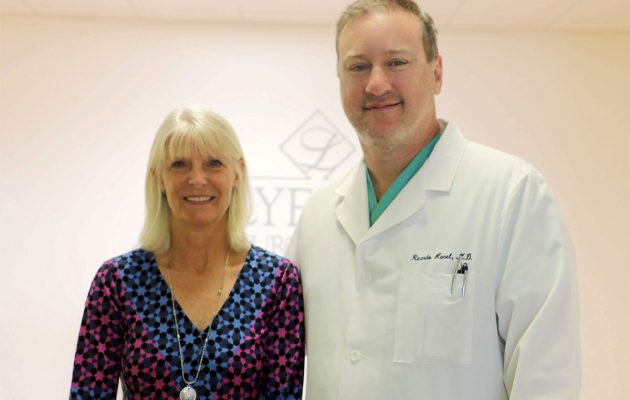Jordan joins Baptist Health’s Familial Brain Aneurysm Study to help others, ends up saving her own life

Threat discovered during state-funded research screening to assess the hereditary probability of brain aneurysms in families.
Pamela Jordan, 61, wasn’t having any symptoms, exercised three days a week and lived a healthy lifestyle; but, because of her family history of aneurysm and stroke, she agreed to participate in Baptist Health’s Familial Brain Aneurysm Study. Backed by $750,000 in grants from the State of Florida, the study allowed Jordan to receive a magnetic resonance angiographic (MRA) scan that provided images of her arteries. Ricardo Hanel, MD, PhD, neurosurgeon and co-medical director of Baptist Stroke & Cerebrovascular Center, evaluated the scan for abnormalities and found a 6mm unruptured aneurysm behind Jordan’s right eye.
“I wasn’t thinking I’d have a problem, but if I can do something to help others, I’m all for it,” Jordan said. “I was surprised when they actually found something!”
Dr. Hanel inserted a cylindrical pipeline device to slow the flow of blood into the aneurysm and allow the vessel to heal, making Jordan the first family member to be treated for an aneurysm found during the study.
“Today, we know that if you have two first-degree relatives (mother, father, siblings) with a brain aneurysm, your risk of having an aneurysm increases from 4% to 8%,” said Dr. Hanel, the principal investigator of the study. “Discovering Mrs. Jordan’s aneurysm in the course of the study is gratifying because we helped prevent a possible emergency situation, and it’s further evidence that heredity may play a role in predicting the likelihood of aneurysm in a family line.”






